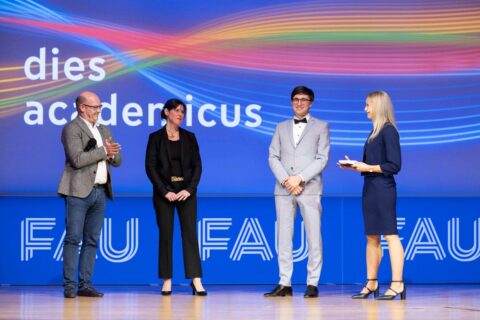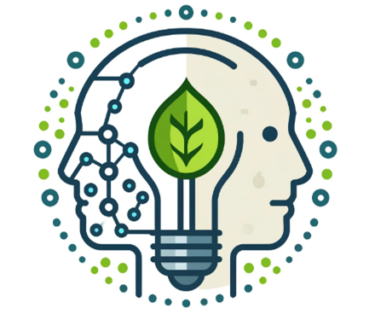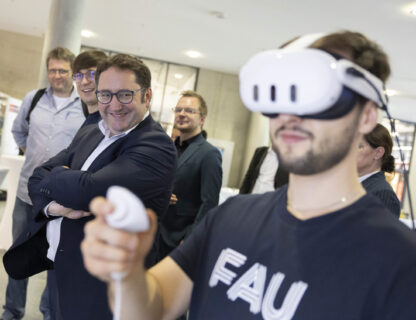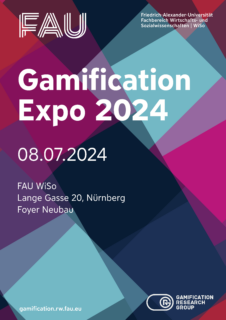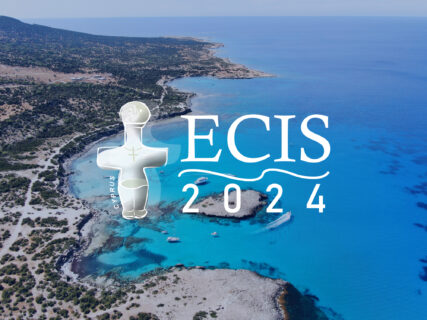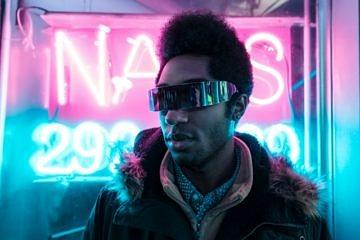Assistant Professorship of Information Systems (Gamification) – endowed by adidas
The Gamification Research Group will end its work at FAU in the winter semester 2024/2025 to continue at the University of Bamberg. We would like to thank all students, colleagues, and partners for the great collaboration over the past four years.
The Gamification Research Group at FAU investigates the increasing penetration of technology, business, and everyday life with games, game design elements, and emerging phenomena from the (video) gaming industry, such as virtual & augmented realities, virtual goods, eSports or the ‘metaverse’.
In particular, we explore the design of gamified information systems and the effects of game design features on human motivation, experiences, and behaviour (e.g., engagement, participation, collaboration, performance, learning, or technology use).
We apply our research in various domains (e.g., sustainability, training, e-commerce, collaboration, product design, innovation and creativity) and industries (e.g., consumer goods, automotive, banking, healthcare and education) and focus on finding solutions for urgent challenges of organizations and society.
At this year's Dies Academicus at Friedrich-Alexander-Universität Erlangen-Nürnberg (FAU), our interdisciplinary collaboration with Sandra Jeleazcov from the University Hospital Erlangen on the use of gamification in science and patient communication was honored with the prestigious award "FAU Innov...
Unlocking the potential of AI to develop sustainable innovations and business models in "co-creativity" — this is the focus of the project "eCo-CreAItion," which our postdoctoral researcher Jeanine Kirchner-Krath, supported by the Bavarian Research Institute for Digital Transformation (bidt), will d...
Our gamification research group provided insights into ongoing gamification projects in research and teaching on July 8, 2024, as part of the Gamification Expo 2024.
Exciting collaborations were presented, such as with adidas on gamification in football and running, or with the University Hospita...
Games are among the most important media of our time and inspire around 60 percent of the population in Germany. Design approaches and mechanisms of games and the innovations of the games industry thus also offer great potential outside the video games sector - for example, when it comes to educatin...
Our research group is celebrating a great success at this year's European Conference on Information Systems (ECIS 2024): all three submitted papers by Sandra Birnstiel, Runjie Xie and Jeanine Kirchner-Krath were accepted for presentation at the conference in Cyprus and for publication in the confere...

